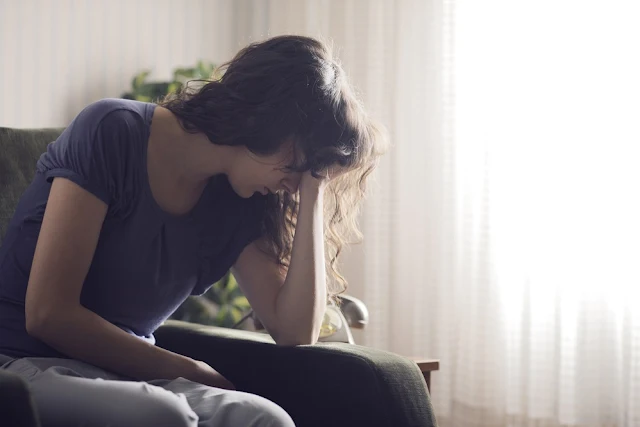
Depression is a common mental health condition that affects millions of people worldwide. It can be challenging to deal with and significantly impact a person's life, including their relationships. If your partner is struggling with depression, it can be hard to know how to help. Here are some tips for supporting your partner through this difficult time.
Therapy can be beneficial for people with depression. A therapist can provide support, guidance, and tools for managing symptoms. They can also help your partner develop coping strategies and work through any underlying issues contributing to their depression.
You can also encourage your partner to talk to a therapist or support group, as these resources can provide additional support and understanding.
Depression can strain even the most vital relationships, and it's essential to address any issues that may arise. A therapist can help couples work through conflicts and find ways to support each other through difficult times.
If your partner's depression dramatically impacts your relationship, you should consider seeking relationship therapy from Relationshipsandmore.com in Westchester, NY, to find essential support and guidance. Don't hesitate to ask for help if your partner needs it.
Recognize the Signs of Depression
The first step in helping your partner deal with depression is to recognize the signs. Depression can manifest in different ways, but some common symptoms include the following:- Decreased interest in previously enjoyed activities
- Sleep disturbances: insomnia or excessive sleep
- Changes in appetite and weight
- Fatigue or lack of energy
- Irritability or restlessness
- Impaired concentration and decision-making abilities
- Physical manifestations like headaches or stomach discomfort
Encourage Them to Seek Professional Help
Depression is a manageable condition, but it cannot be overcome alone. Encourage your partner to seek professional help from a therapist or mental health professional. You can offer to help them find a therapist or make an appointment, but ultimately, it's up to them to take that step.Therapy can be beneficial for people with depression. A therapist can provide support, guidance, and tools for managing symptoms. They can also help your partner develop coping strategies and work through any underlying issues contributing to their depression.
Support Them in Self-Care
Self-care is essential for people with depression. Encourage your partner to take care of themselves by:- Eating a healthy, balanced diet
- Incorporating consistent physical activity
- Ensuring adequate sleep
- Utilizing relaxation techniques like meditation or yoga
- Immersing in nature
- Participating in enjoyable activities
Be a Good Listener
Depression can be an isolating experience, and it can be helpful for your partner to have someone to talk to. Be a good listener and offer a safe space for your partner to express their thoughts and feelings. Avoid judging or criticizing them, and try to validate their experiences.You can also encourage your partner to talk to a therapist or support group, as these resources can provide additional support and understanding.
Educate Yourself about Depression
Educating yourself about depression can help you better understand what your partner is going through. It can also help you provide more effective support. Learn about the different types of depression, the symptoms, and the treatments available.Set Realistic Expectations
It's essential to have realistic expectations when supporting a partner with depression. Depression can be a chronic condition, and it may take time for your partner to see improvement. Be patient and supportive, and avoid putting pressure on your partner to "get better" quickly.Celebrate Small Victories
Celebrate small victories with your partner, such as getting out of bed, walking, or completing a task. These victories may seem small, but they can be significant accomplishments for someone with depression. Depression can make even small jobs feel overwhelming.Take Care of Yourself
It's essential to take care of yourself as well. Make sure you're getting enough rest, exercise, and healthy food. Take breaks when you need them, and seek support from friends, family, or a therapist if you need it.Consider Relationship Therapy
If you're struggling to support your partner with depression, relationship therapy can be helpful. Relationship therapy can help couples communicate effectively, manage conflict, and support each other through difficult times. A therapist can provide a safe space for both partners to express their thoughts and feelings and work together to overcome challenges.Depression can strain even the most vital relationships, and it's essential to address any issues that may arise. A therapist can help couples work through conflicts and find ways to support each other through difficult times.
If your partner's depression dramatically impacts your relationship, you should consider seeking relationship therapy from Relationshipsandmore.com in Westchester, NY, to find essential support and guidance. Don't hesitate to ask for help if your partner needs it.
